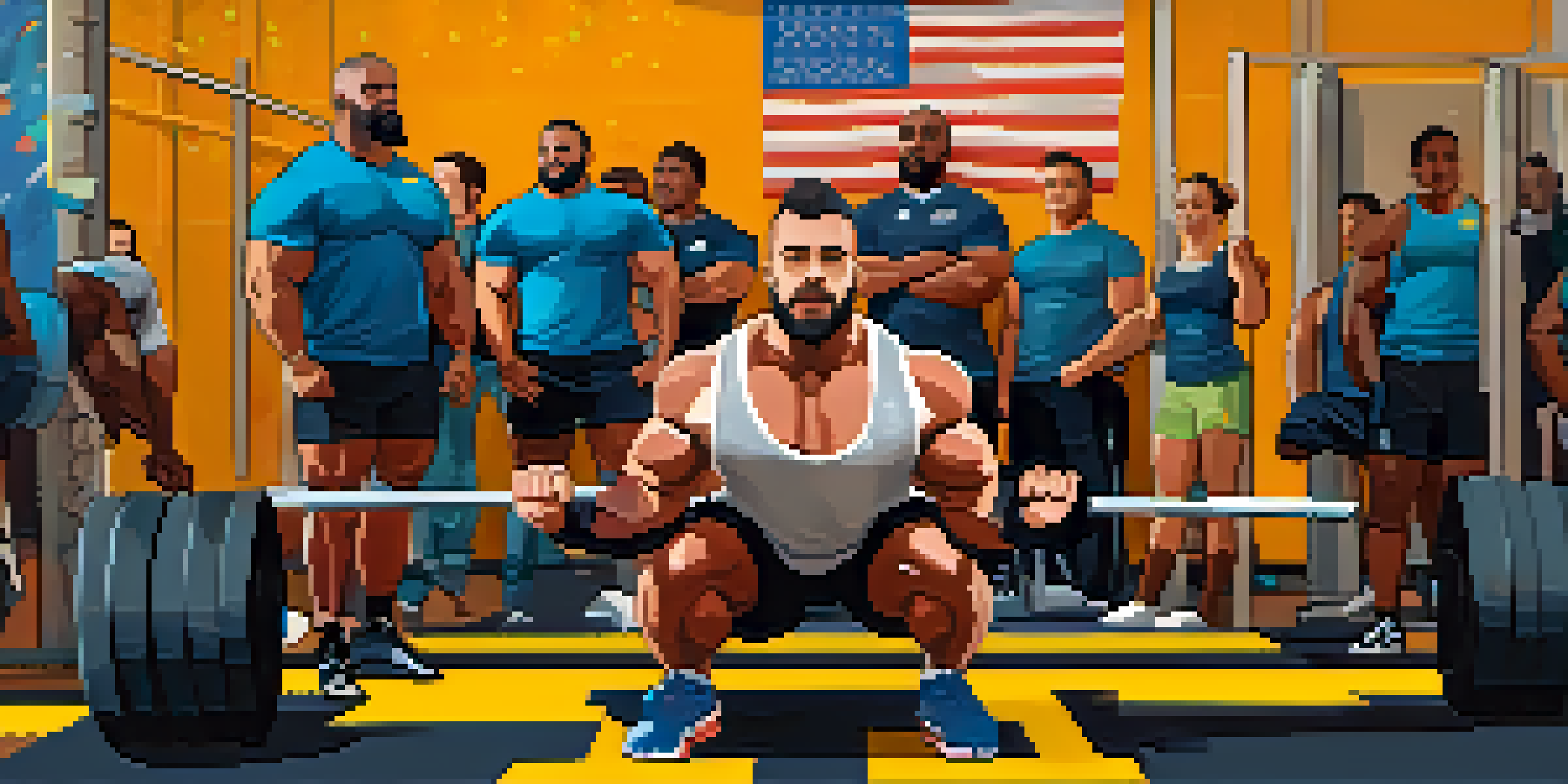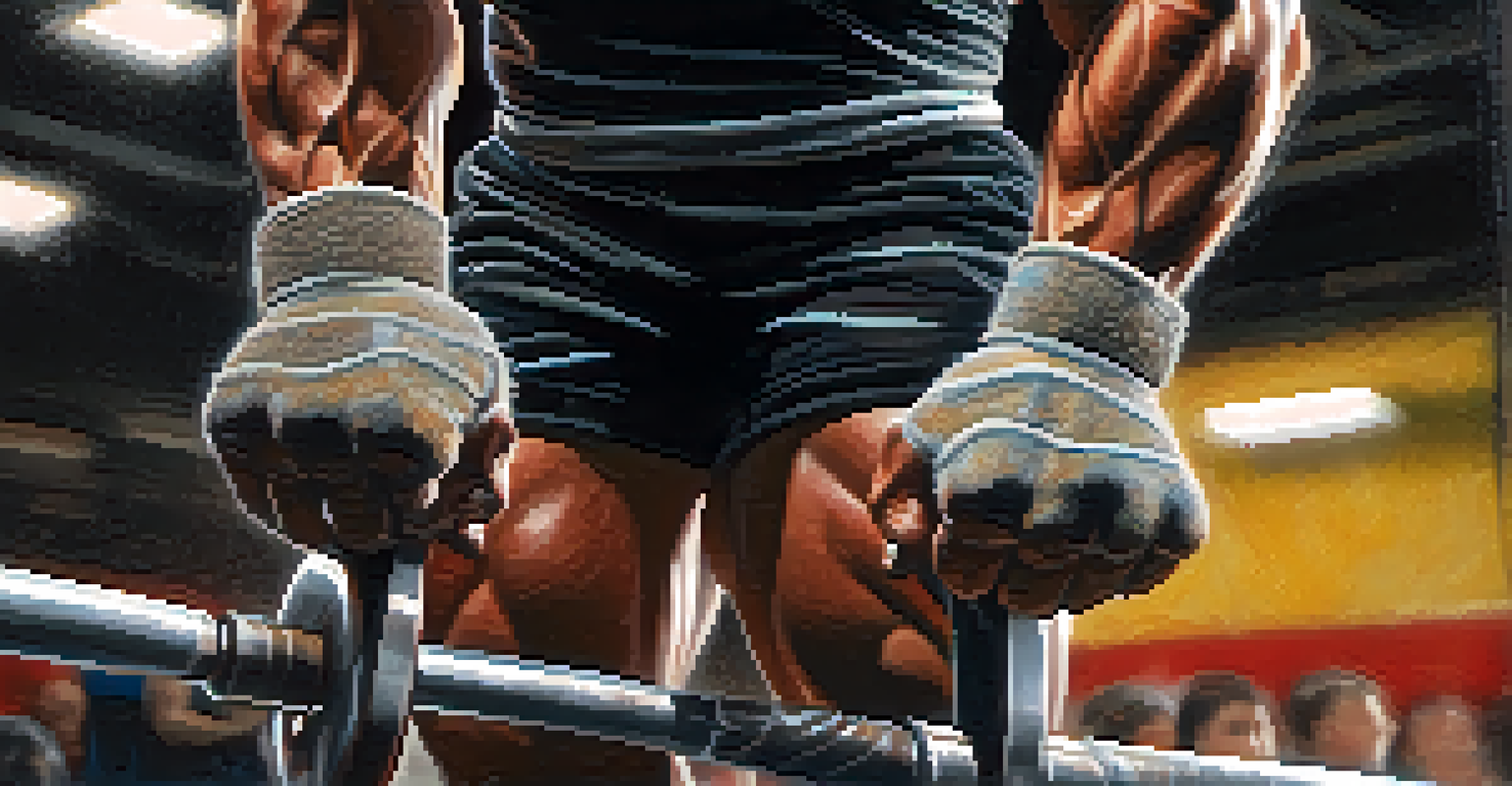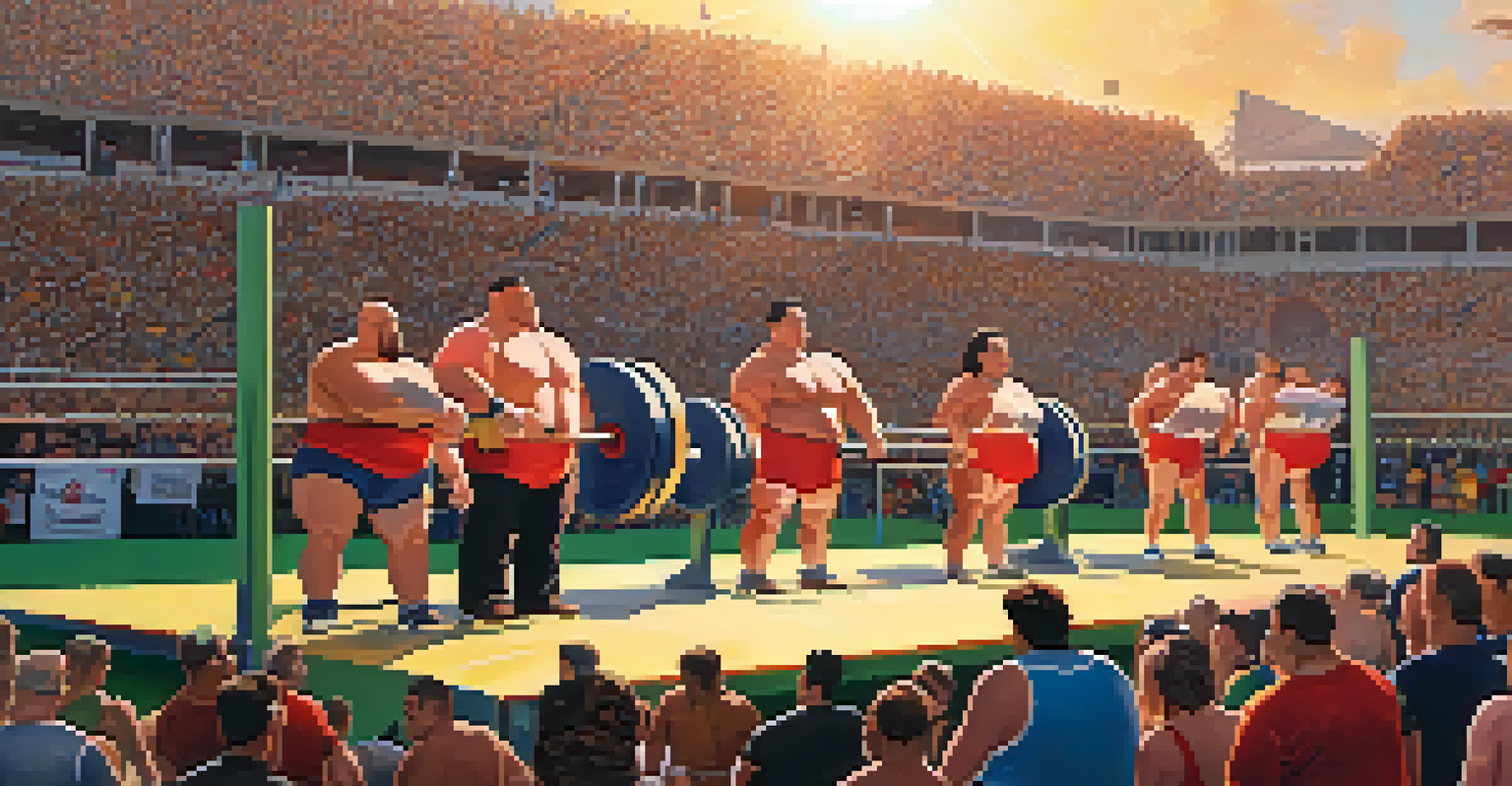Weight Classes and Body Image Issues in Powerlifting

Understanding Weight Classes in Powerlifting
Weight classes in powerlifting serve a crucial purpose: they create a level playing field. By grouping lifters of similar body weights, competitions can be fairer and more competitive. This system encourages athletes to focus on their strength relative to their size, rather than purely on absolute strength.
Strength does not come from physical capacity. It comes from an indomitable will.
However, these weight classes can lead to significant pressure on athletes to fit into a specific category. Some lifters may resort to unhealthy practices to make weight, such as extreme dieting or dehydration. This not only affects their physical health but can also impact their mental well-being.
It's important to recognize that while weight classes are a standard part of the sport, they can also contribute to body image issues. Athletes may feel the need to conform to societal ideals of body shape and size, which can detract from their enjoyment and passion for powerlifting.
The Pressure to Maintain Weight
Maintaining a specific weight class can create a constant mental and physical struggle for powerlifters. This pressure often leads to yo-yo dieting, where athletes oscillate between losing and regaining weight. Such fluctuations can hinder performance and overall health, making it a challenging cycle.

Moreover, the societal expectations surrounding body image can intensify this pressure. Powerlifters may feel compelled to lose weight to fit into a lighter class, even if it means sacrificing strength. This focus on weight can overshadow the more important aspects of lifting, like technique and personal progress.
Weight Classes Impact Health
The pressure to maintain weight classes can lead to unhealthy practices and negatively affect athletes' mental and physical well-being.
Ultimately, the desire to excel within a weight class can lead to a distorted relationship with food and exercise. Instead of viewing food as fuel, athletes may start to see it as an enemy, which can significantly affect their mental health and self-esteem.
Body Image Issues Among Powerlifters
Body image issues are not just limited to athletes in aesthetic sports; powerlifters face their own unique struggles. The emphasis on weight classes can create a negative self-image, as lifters compare themselves to others within their category. This comparison can lead to feelings of inadequacy or low self-worth.
The most important thing is to enjoy your life—to be happy—it's all that matters.
Many powerlifters grapple with the idea that they need to look a certain way to be successful. This perception can be damaging, as it often prioritizes appearance over performance. The reality is that strength comes in various forms, and every athlete has their own unique body type that can excel in powerlifting.
Promoting body positivity within the powerlifting community can help combat these issues. By celebrating diverse body types and focusing on strength achievements rather than weight, athletes can foster a healthier mindset and a more inclusive environment.
The Influence of Social Media
Social media plays a significant role in shaping perceptions of body image in all sports, including powerlifting. Athletes often showcase their physiques and accomplishments online, which can unintentionally set unrealistic standards for others. This can lead to comparison fatigue, where individuals feel they don’t measure up to their peers.
While social media can be a platform for inspiration, it can also perpetuate harmful stereotypes about body weight and size. Lifters might feel pressured to post about their weight loss journeys or to highlight only their successes, neglecting the challenges many face behind the scenes. This selective sharing can create a skewed perception of what it means to be a successful powerlifter.
Body Image Issues in Powerlifting
Powerlifters often struggle with body image due to societal expectations, leading to comparisons that can diminish self-worth and enjoyment of the sport.
Encouraging authentic representation on social media can help mitigate some of these issues. When athletes share their struggles alongside their successes, it fosters a more supportive and realistic environment for everyone involved in the sport.
Finding Balance: Health vs. Performance
Striking a balance between health and performance is essential for powerlifters. While it’s natural to want to compete at your best, it should never come at the cost of your overall well-being. Athletes need to prioritize a healthy lifestyle that supports their training without succumbing to extreme measures.
This balance can often be achieved through a focus on nutrition that enhances performance rather than restricts it. Proper fueling not only helps lifters maintain their weight class but also promotes recovery and strength gains. Athletes should view food as a source of energy and empowerment, rather than a tool for restriction.
By prioritizing health in their training, powerlifters can cultivate a positive relationship with their bodies. This approach allows them to enjoy the sport fully and appreciate their achievements without the burden of body image issues.
Support Systems for Athletes
Having a supportive network can make a world of difference for powerlifters facing body image issues. Coaches, friends, and family can play a crucial role in encouraging a healthy mindset and promoting positive self-talk. Open conversations about body image can help athletes feel less isolated in their struggles.
Additionally, connecting with peers who share similar experiences can provide powerful camaraderie. Many lifters find solace in discussing their challenges with others in the community, fostering an environment where everyone feels understood and supported. This sense of belonging can be incredibly empowering.
Support Networks Foster Positivity
Building supportive networks within the powerlifting community can empower athletes to navigate body image issues and promote mental health awareness.
Creating a culture of support within the powerlifting community is essential. By advocating for mental health awareness and body positivity, athletes can help one another navigate the complexities of weight classes and body image issues together.
The Future of Powerlifting and Body Image
As the powerlifting community evolves, there’s hope for a shift in how body image is perceived within the sport. Increased awareness about mental health and body positivity can lead to a more inclusive environment. This change can encourage athletes to focus on strength and personal goals rather than fitting into a weight class mold.
Educational initiatives that promote healthy lifestyle choices and body acceptance could transform the landscape of powerlifting. Workshops, seminars, and campaigns can help athletes understand the importance of self-love and mental health. This can ultimately lead to a healthier and more supportive community.

The future of powerlifting may very well be a celebration of diversity in body types and lifting styles. By embracing all athletes, regardless of their size or shape, the sport can foster a culture that values strength, resilience, and authenticity over mere numbers on a scale.